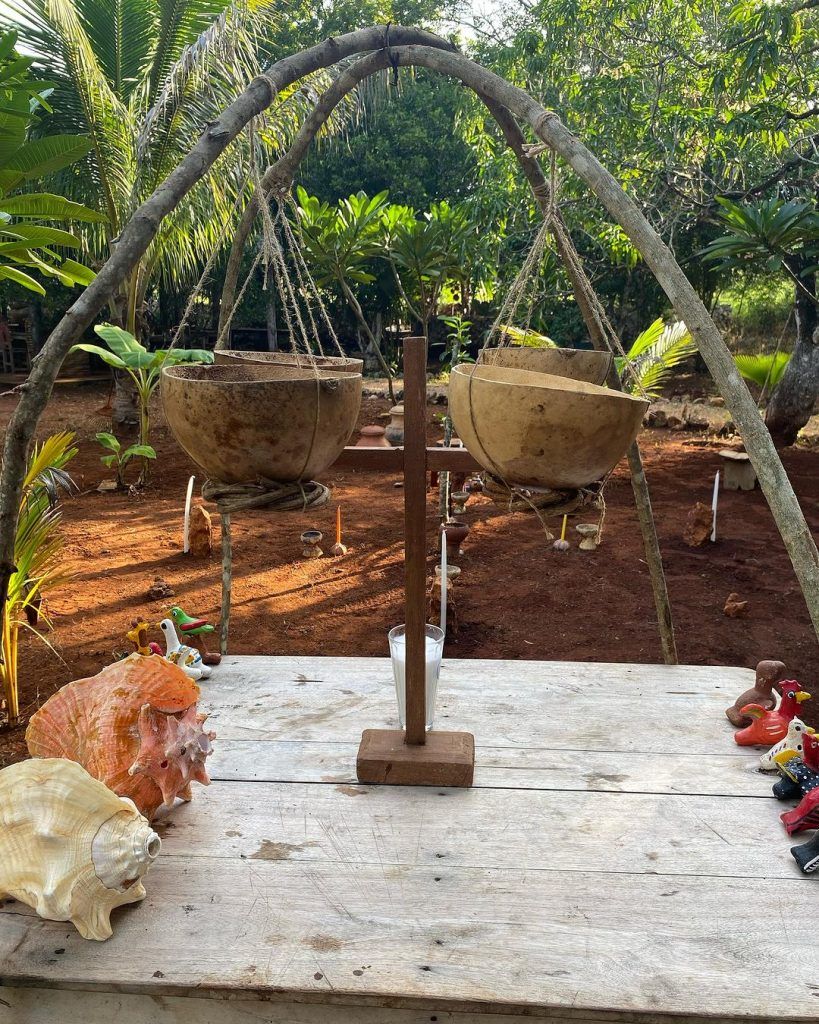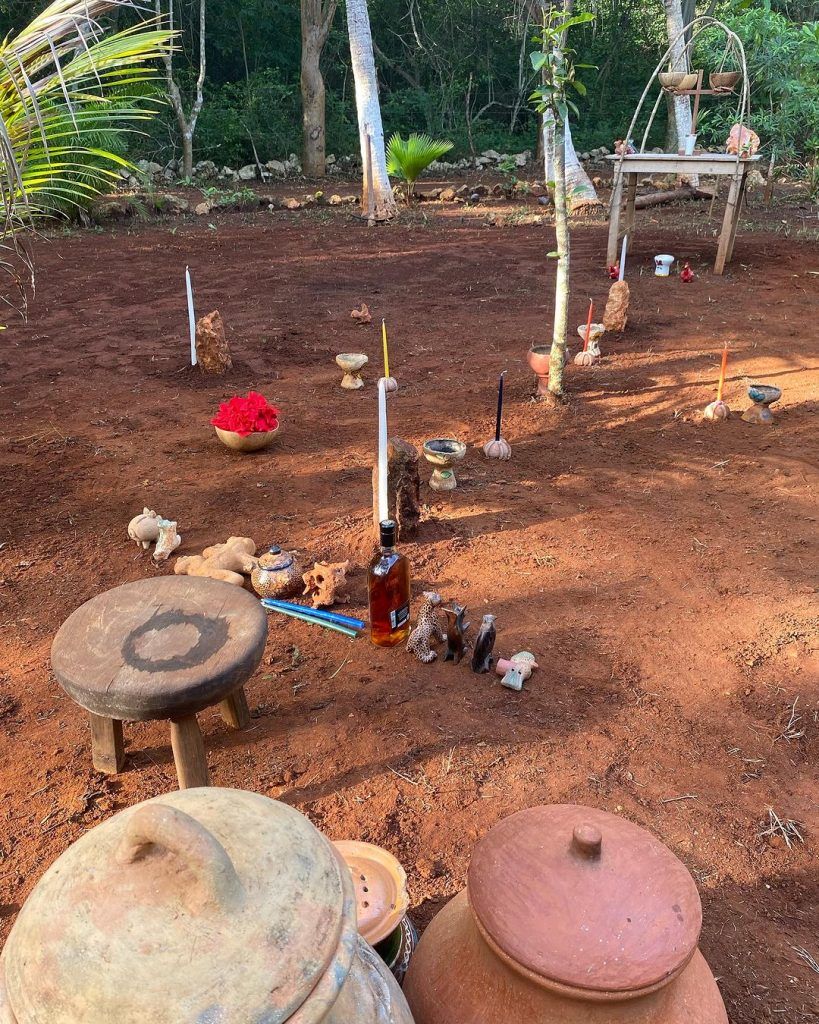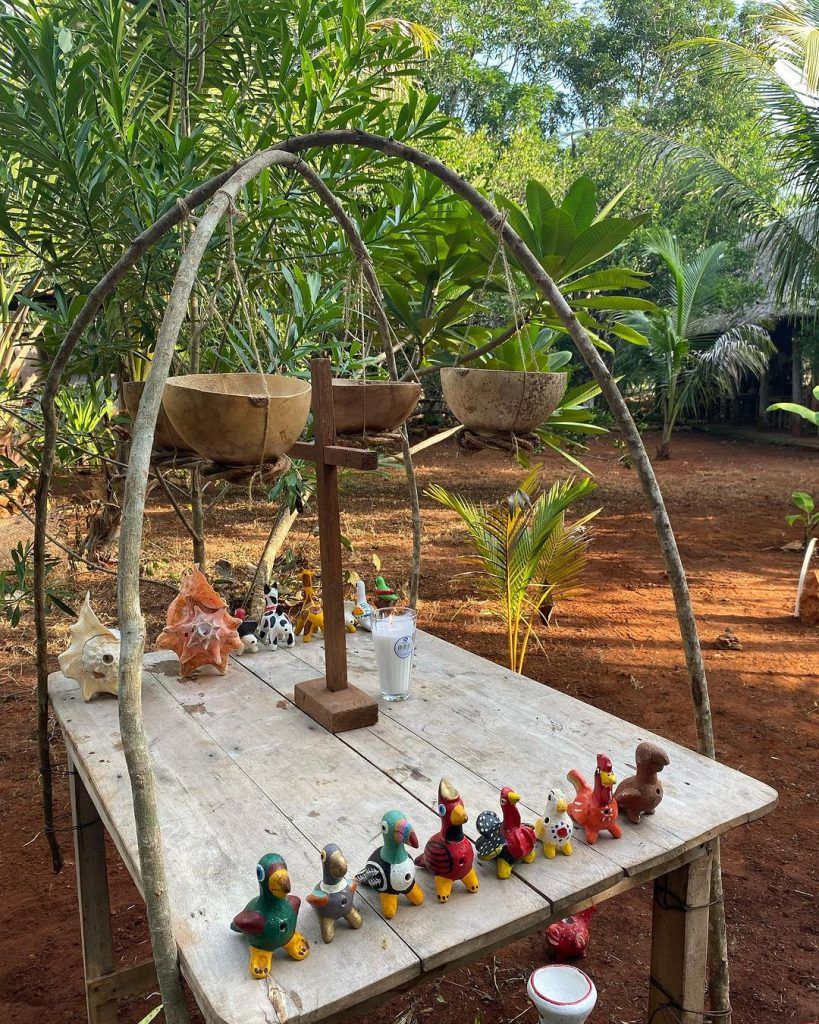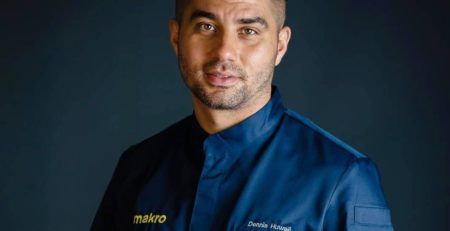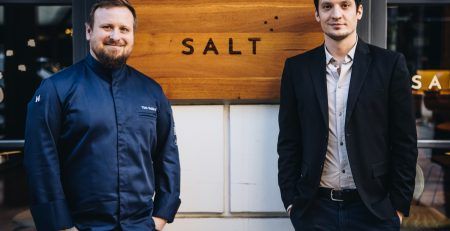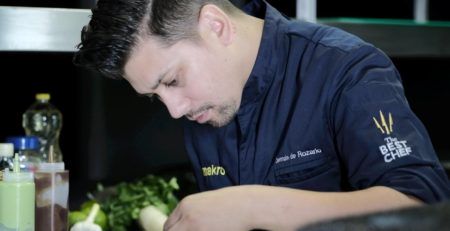Chef Wilson Alonzo dedicated his life to preserving Yucatecan culinary traditions. He possesses extended knowledge of regional food and ingredients. This allows him to present authentic Yucatecan tastes to his guests in the Ya’axche Restaurante – Centro Etnogastronómico, located in the small town of Halachó. In Ya’axche you lose yourself in the peace, Mayan spirituality, and aromas of regional cuisine.
The Best Chef: How did your adventure with food start?
Wilson Alonzo: I started cooking 9 years ago out of necessity. My mom would go to work, and she would write down recipes in a notebook so I could cook for myself, my little brother, and her when she got home. That’s when I began to enjoy cooking a little, and it was with my mom and grandma that it all started. Before that, they didn’t let me cook, one because I was a boy and just a kid.
I started studying tourism before gastronomy for financial reasons and, as I see it, that’s when I began to enjoy cooking a lot more, a more professional style of cooking, so to speak. That being said, I think that during my studies I learned that I also needed to value home cooking as well as our regional cuisine, and I started to learn from master chefs. I learned about ingredients, seasons, and things about the universe that have to do with what we eat and, from there, I started to cook traditional Yucatecan dishes. It’s also a way to elevate our origins, our flavors, our ingredients; but, most of all, it’s a way to reclaim the flavors of our mothers and grandmothers through cuisine.
I’ve been teaching for 12 years. For 8 years I’ve been cooking traditional Yucatecan dishes, focusing specifically on origins, which have to do with the milpa system, indigenous products, production times, respecting techniques, knowing what can be offered by stones, fire, the different seasons like when it’s really sunny, when there’s lots of rainfall, and how to understand cooking through all of this. And, today, I also do it to be able to preserve our cuisine. I’ve always said that knowing where we come from is what will allow us to evolve in the future.
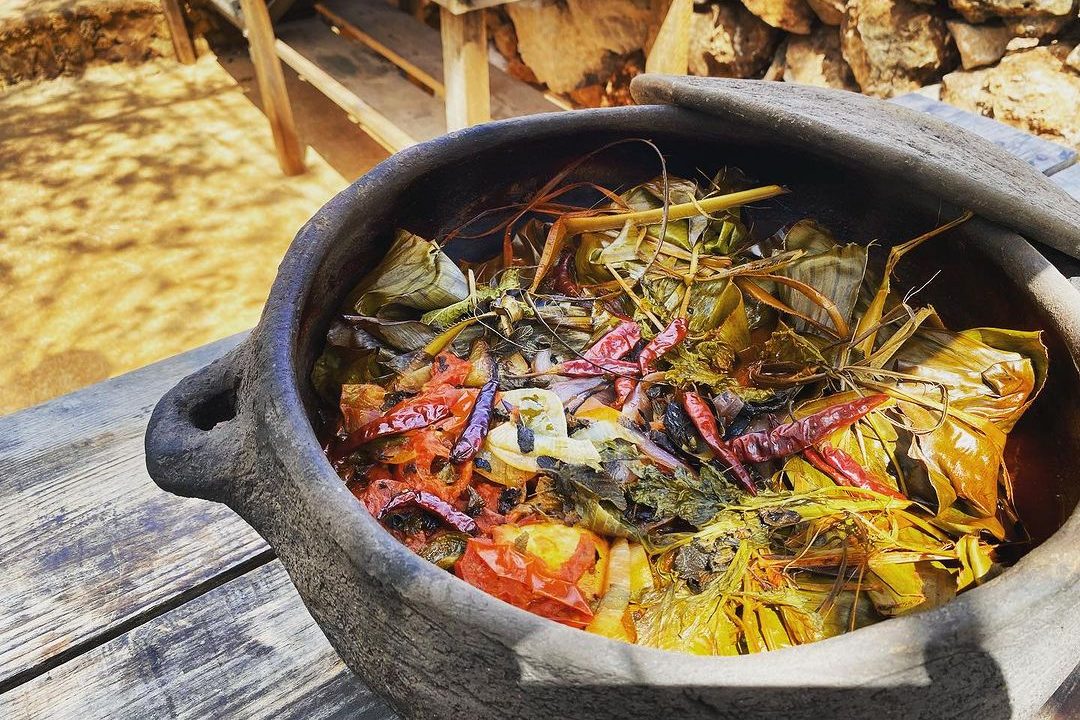
The Best Chef: What motivates you to cook? Is it just because you enjoy cooking, or is it to preserve your culture, cuisine, and traditions?
Wilson Alonzo: First of all, you have to enjoy eating. I enjoy eating what my region produces. In September, and October time, there’s nothing I like more than picking some corn, boiling it, and eating it; but it’s not just about eating, it’s also about knowing where it comes from, how long the production process takes, knowing that there’s a seasonal milpa system… I think that this is where the idea starts, not just eating for the sake of it, but eating to understand what the earth can provide.
That’s why I cook – I believe that it’s about much more than just lighting a fire; it’s about the people who eat our food understanding that there’s a whole background, that we have roots, that we’re the embodiment of a culture, that we’re ingredients, that we enjoy what we do through that fire. I believe that all this culminates in the dish when you love what you do. We always cook because we believe that we must first honor the land and then eat to nourish our body. The soul comes first, and the body is attached to it; that’s why we cook.
The Best Chef: Do you believe that your cuisine and culinary tradition are at risk of extinction due to the influence of other cuisines or cultures?
Wilson Alonzo: I believe they go hand in hand, in the sense that all cuisines have to evolve. I see it, for example, in our case where we consume lots of firewood which, at the end of the day, is part of our resources. Sometimes you may use tools that reduce pollution or something that harms the environment. You can do your part for the world, so to speak.
Other times, however, we focus on things whose origin we don’t know or don’t understand, and our cuisine takes a back seat. I strongly believe that we must be aware of our culinary tradition, but, most importantly, of those who keep our culinary tradition alive. This is done by our communities that keep our culture alive, for example in your own backyard, making products at home, healthy products, that can be eaten when there is a need. And, at the end of the day, those who focus on more progressive cuisine must return to their origins, because the best ingredients are found where they are produced by the land.
So, it’s important to take care of this aspect. This aspect is cultural, it has to do with our roots, our origins, our everyday lives, and our knowledge. What is our responsibility as chefs? It is to take care of it, preserve it, but above all, to pass it on. Just like my grandma used to say, a book that remains closed gathers dust and sometimes even becomes infested with bugs; the same applies to cuisine. A cuisine that doesn’t expand, that doesn’t regenerate, that doesn’t light up is obviously destined to die.

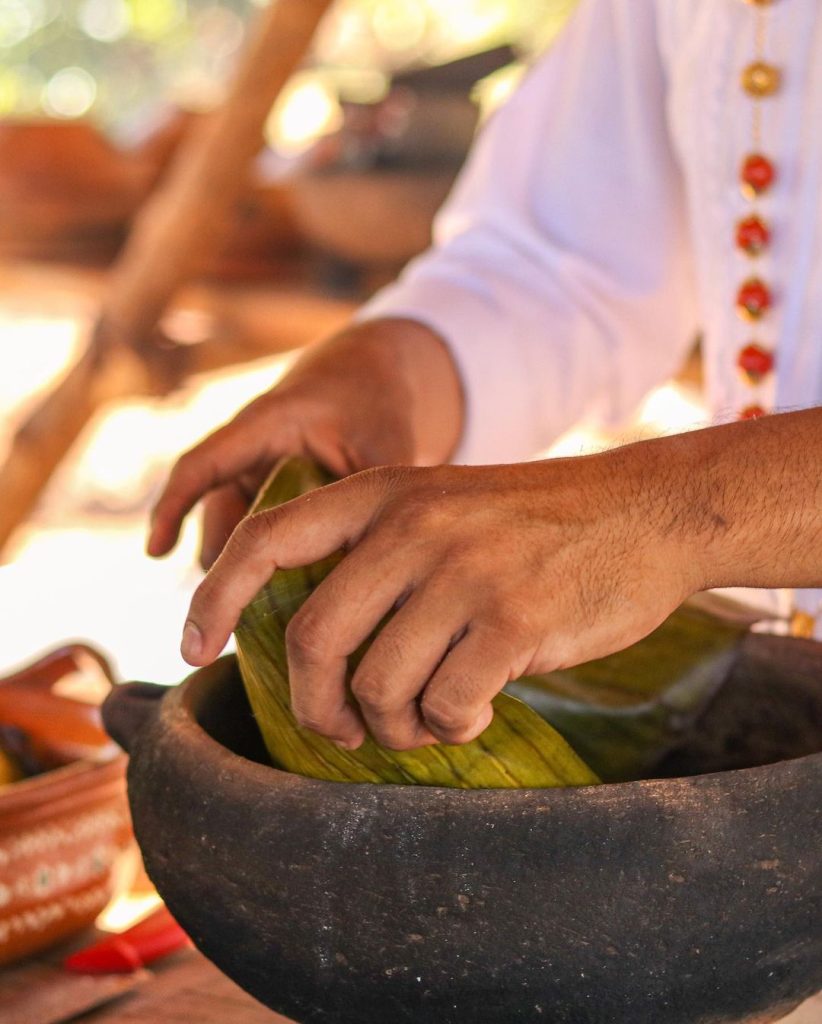
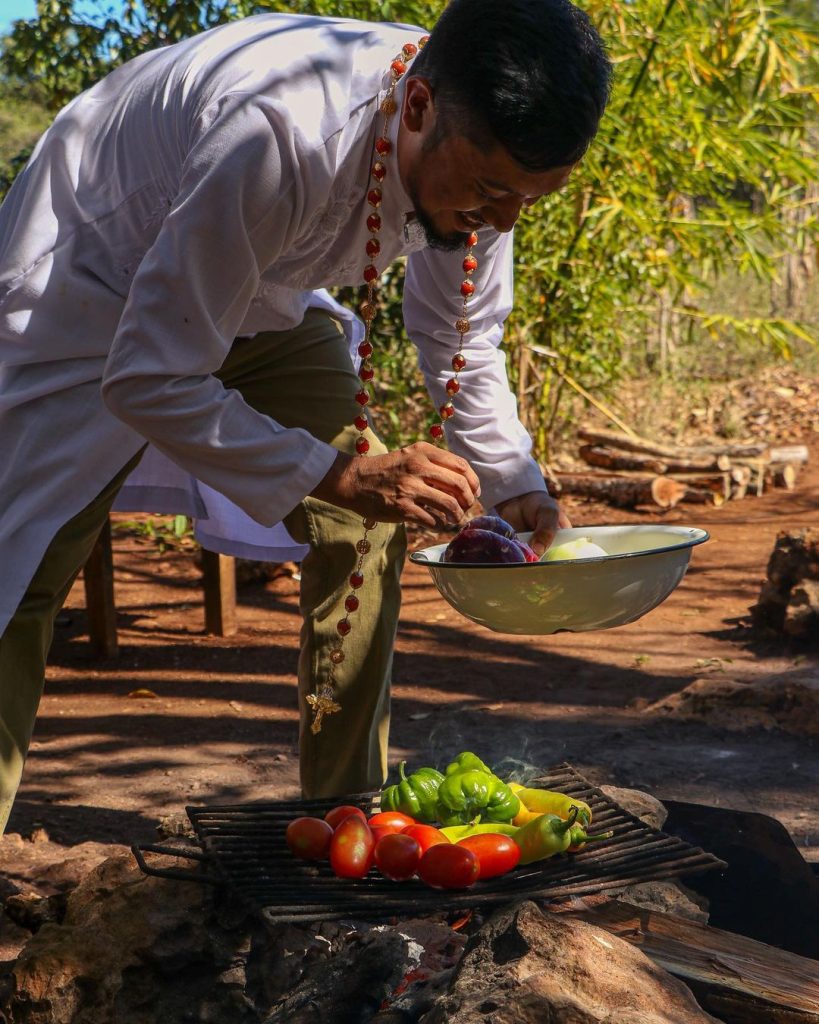
The Best Chef: What makes Yucatecan cuisine unique?
Wilson Alonzo: What makes it unique? I think that it’s the fact that we don’t simply cook to eat, and also that we have one of the most prominent harvesting systems in the country, known as milpa. It is a three-dimensional system where the center is corn, and as you go upwards, for example, you find different varieties of beans, to the sides you find varieties of pumpkin, and as you go downwards you come across varieties of tubers such as sweet potatoes and Mexican yams. I believe that our cuisine is based on these pillars of the milpa system, unlike other places that don’t have the same system and have to source products from elsewhere.
Our cuisine is both sustainable and healthy. Yucatecan cuisine today includes other ingredients that do nothing for our body, but in its traditional form it has products that can heal you. For example, if you feel weak due to not eating enough protein, just by eating a pigeon your body can heal and, in this way, restore; this is what makes our cuisine unique. It is the fact that we have good products, healthy products that at the same time are related to the milpa system.
The Best Chef: Are there any products from our land that are extinct or at risk of extinction?
Wilson Alonzo: The first thing at risk is the milpa system, and the second is that we are consuming fewer and fewer products such as corn, or varieties of corn that are native to the area. Types of corn such as “Xmejen Nal” and “Nuuk Nal” are no longer being produced, and the same goes for some bean varieties…
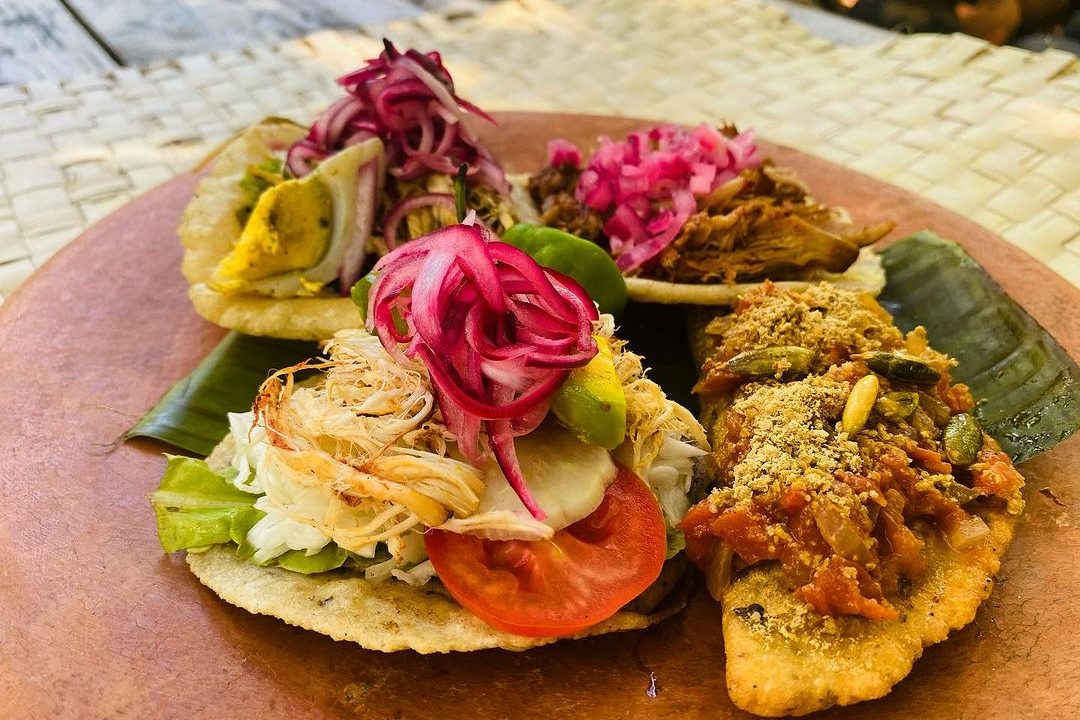
Until 8 years ago I was only familiar with the white bean, then I started getting to know varieties such as the “Putsi Kall Susu ib”, which means “pigeon heart bean” and has a spotted red pattern. What’s more, when you visit another community, you come across different varieties. The issue is that, since these products are not available in the market, they are not consumed and do not transcend.
Another concern is that the corn growers are now very old and when they pass away the seed goes with them. It’s not that they take the seed with them, but rather that it is no longer produced. And if nobody produces the seed, the crop is no longer harvested. And then a time will come when that seed’s lifecycle will end. Because we young people sometimes lose interest. I could mention some bean varieties or some types of pumpkin that are no longer being produced.
Before, we used to produce a lot of xcaita, a striped pumpkin whose seed we call xtop. Now its production is declining because we no longer eat much pumpkin; we prefer other things. From this pumpkin, you can eat the flesh, then you can dry it and use the skin to make sweets. You can also use the seeds to make papadzules or eat them as a snack. Just like this one, there are lots of ingredients that are declining in popularity. While they are still maintained within the communities, there will come a time when they will die out, because knowledge fades away with the older generation.
The Best Chef: In November, some of the best chefs in the world will come together in Yucatán, what should they know or why should they come to Yucatán?
Wilson Alonzo: They should come to Yucatán because, first of all, we are calm people; secondly, we welcome everyone with open arms. From the very first moment, we treat guests like family, even if we’ve never met before.
They should come to Yucatán because we also have dishes that are not only quick to prepare, but they all have a process behind them. And, within that process, there’s a sense of ritual.
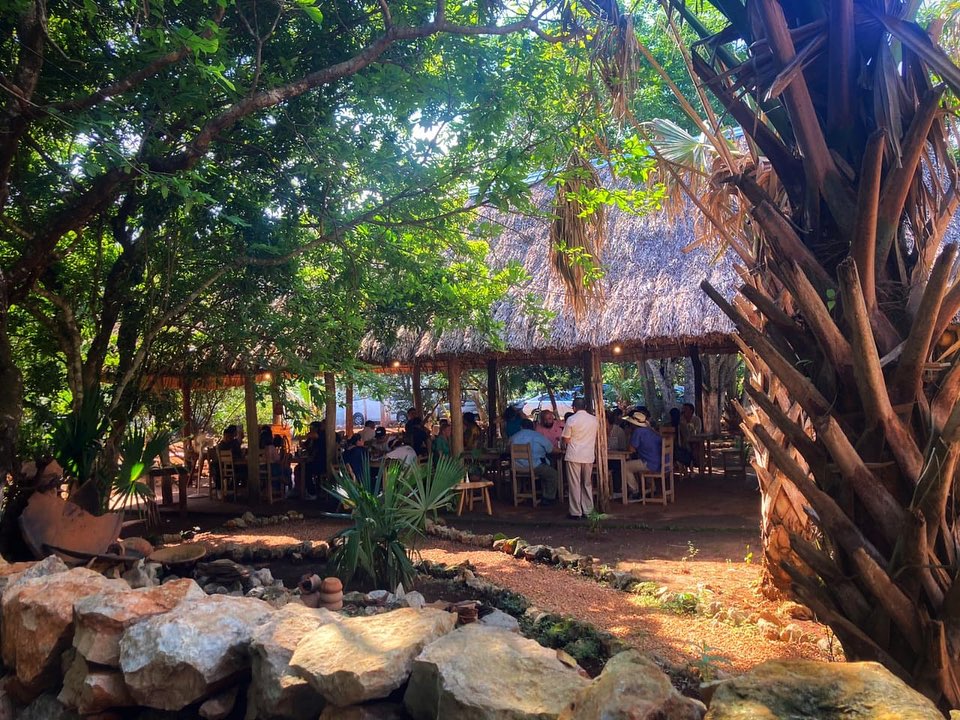
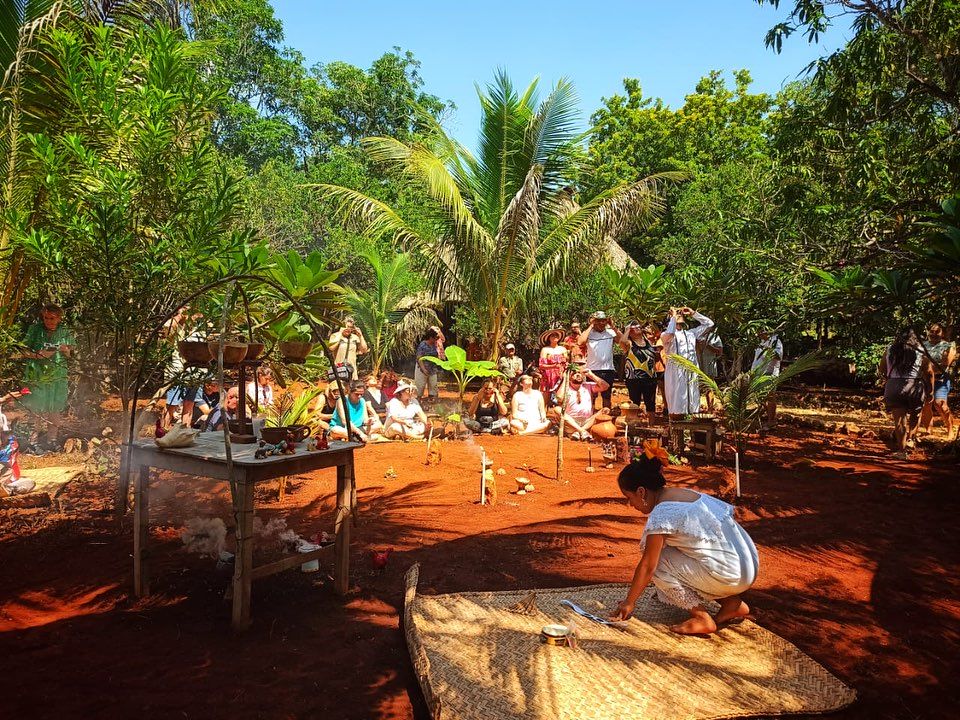
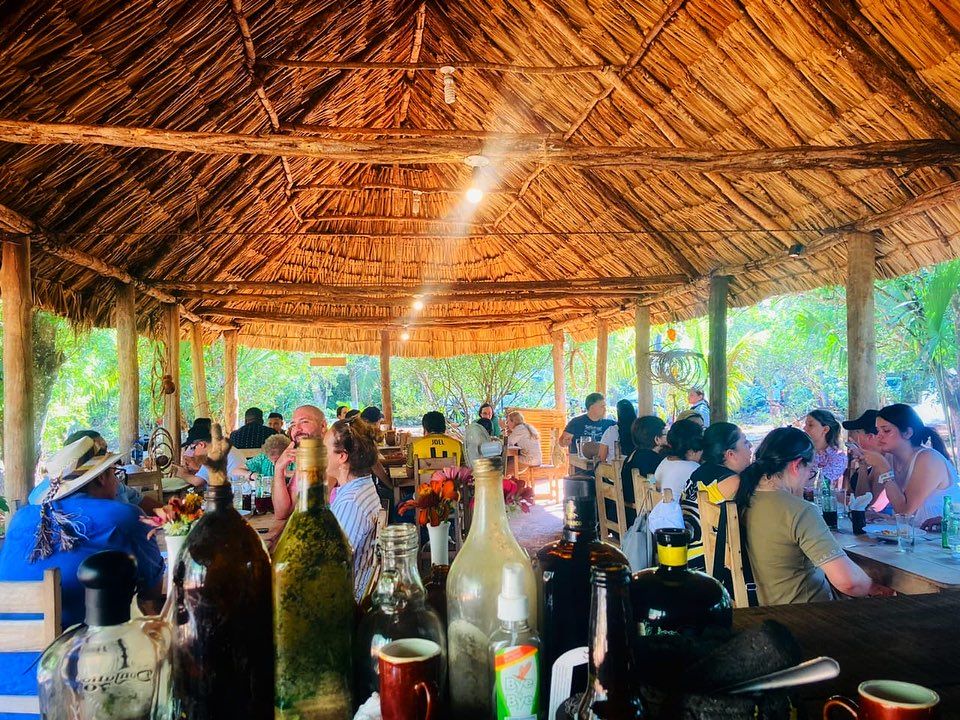
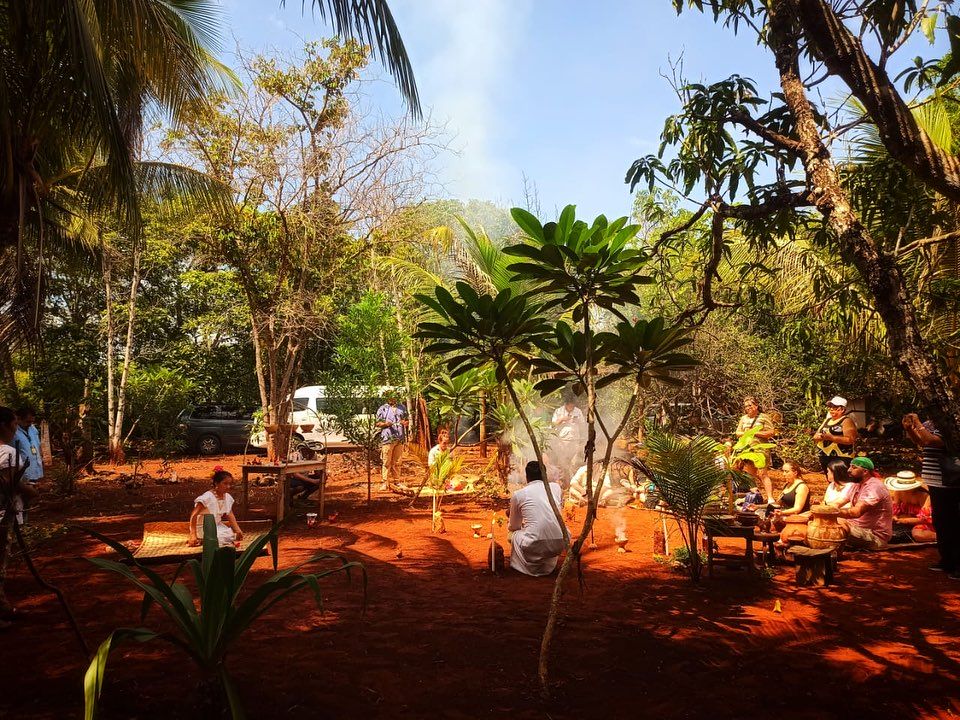
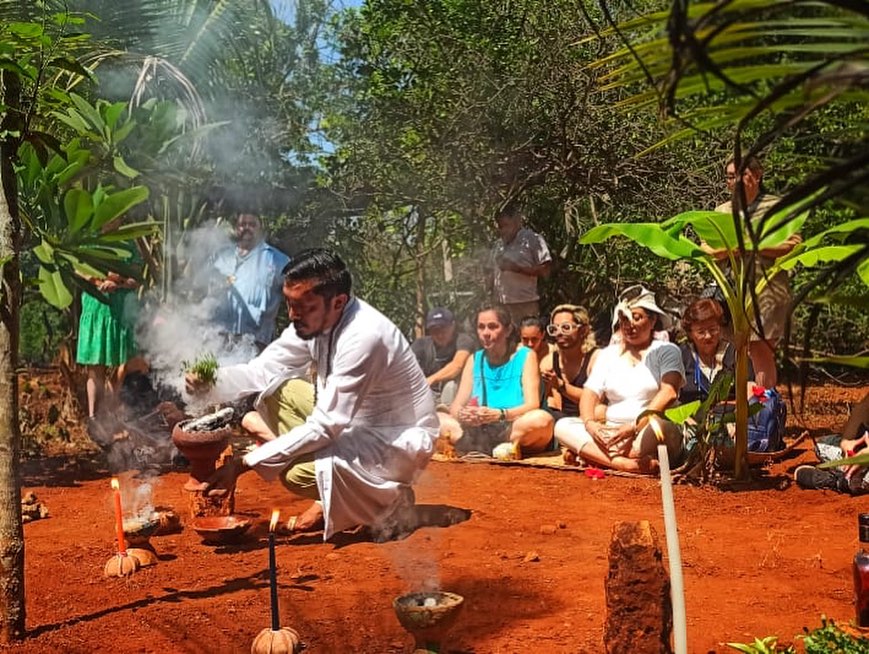
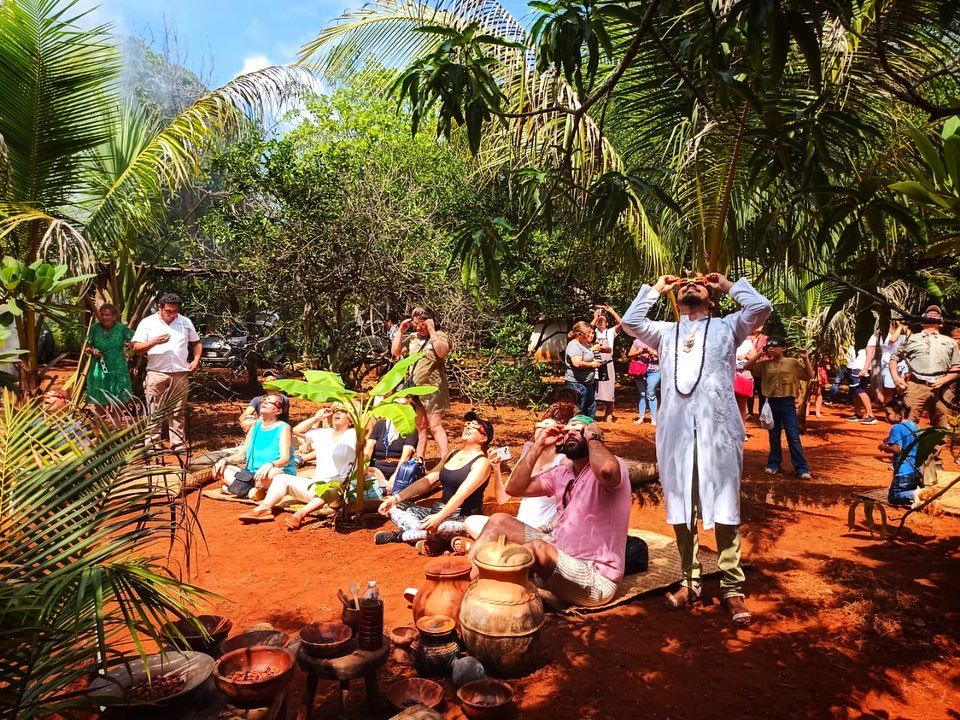
We have aromas, flavors, and colors that, while they may be present in other cuisines, possess a different essence here. This is because they come from a land of ancient people who left us their legacy.
But, above all, they should come to Yucatán because there are people who continue to keep our culture alive, our tradition, our ingredients, our techniques, and I think that this is what we can express through food. When they take a bite of our land, even when they’re no longer here, they will remember their visit to Yucatán. And I hope that in that bite of memories, they can also say: I don’t miss it, but I wish I were there.
They have to come and try our food. They also need to understand that Yucatecan cuisine isn’t just about panuchos, salbutes, cochinita… It’s about traditional dishes such as pumpkin joroches, stone-cooked toxel, our different cabbage varieties, and the types of birds we consume that, while they may seem exotic, are a staple part of our cuisine. There are lots of ingredients, lots of techniques, and lots of dishes that can be savored by many of our visitors. It’s important to give value to our communities. It’s essential because they hold our roots, they speak for what we do, and, above all, they take care of and preserve our culture and our land, which is fundamental.
The Best Chef: Over all this time, our culture has grown so much and continues to be preserved. What makes this fact so special?
Wilson Alonzo: That we do not resist progress. That we adapt while also preserving our roots. I’ve always said that when your roots are strongly grounded, many changes can come your way. It’s fine to make those changes, and based on the strength of our roots, our people, and our culture we can make great progress. Not only from a culinary point of view but also generally speaking, we can improve on what we already have.
This is also valid because, at the end of the day, we have to transcend, and that’s only possible when we have firm roots. In our case, our roots come from our ancestors, from those who walked this land before us, from those who also protected it, who continue to protect us, and who told us that we have the chance to grow through what we learn, as long as we respect the earth, which is the most important thing.
